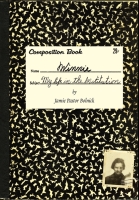Available now
at your favorite bookstore
or online at
Amazon,
Barnes & Noble,
and others
Winnie: My Life in the Institution
by
Jamie Pastor Bolnick
in a brand new second edition—first time in paperback!—
completely redesigned, revised & expanded,
containing the complete, unabridged text of the original
and new, previously unreleased, content!
 |
 |
|
(click for larger images) |
||
Preview Chapter 1 of Winnie: My Life in the Institution
This remarkable book, published to widespread critical acclaim in 1985, has been long out of print and nearly impossible to obtain. |
We are pleased to announce that a new edition of Winnie’s heart-rending and uplifting story is available NOW. The cover of the new edition is a full-color facsimile of Winnie's original notebook, and the book will include never-before-seen material, including
|
Winnie's story was last shared with the world in a well-received 1988 NBC Movie of the Week starring Meredith Baxter Birney and David Morse. The movie, while not available for sale in any format, occasionally appears on TV: you can find out when by following this link. |
These extracts from Winnie’s own preface and author Jamie Pastor Bolnick's foreword to the first edition sketch the story behind Winnie’s extraordinary life, her autobiography, and the author’s loving expansion of the original 20-odd-page autobiography into the beautifully-written first edition of Winnie — based on hundreds of hours of interviews with Winnie and the people who knew her best. |
|
|
